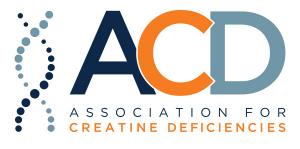Association for Creatine Deficiencies Announces Second GAMT Gene Therapy Grant Awarded to Dr. Gerald Lipshutz
“We have found initial success with developing a gene therapy approach for GAMT deficiency with our first generation vector,” said Lipshutz. “With a mouse model of GAMT deficiency, we find near-complete restoration of creatine levels in the blood and tissues, including the brain, while simultaneously seeing marked reductions of GAA. These are the biological hallmarks of successful GAMT treatment in human patients. Additionally, this was associated with near normalization of brain activity and learning in the mice. We are now embarking on the development of a second generation or improved vector that we believe will allow us to reduce the dose needed to achieve such correction. This is all in an effort to bring this treatment to the patients and families with GAMT deficiency.”
Lipshutz received his medical degree from the UCLA David Geffen School of Medicine and completed his postgraduate training at the University of California San Francisco School of Medicine. Lipshutz is a Professor-in-Residence at UCLA within the Departments of Surgery and the Department of Molecular and Medical Pharmacology. He is also a member of the Intellectual and Developmental Disabilities Institute at UCLA along with the Broad Center; he presently holds the Goldwyn Chair. Within the David Geffen School of Medicine, Lipshutz is the Chairman of the Academic Medicine College. His clinical specialty and interests include liver, kidney, and pancreas transplantation and gene and cell therapies for single gene metabolic disorders of the liver. Lipshutz has been an invited participant in several National Institutes of Health (NIH) conferences and has served as a grant reviewer for both Wellcome Trust and the NIH where he is presently a standing member of the GDD Study Section. As a principal investigator, Lipshutz’s research focuses on regenerative medicine technologies for the investigation and treatment of urea cycle disorders and creatine deficiency disorders; he aims to develop new therapies that would replace liver transplantation for single-enzyme metabolic deficiencies. He is also a PI for multiple NIH grants and industry-sponsored studies for gene therapies.
The current treatment for GAMT varies slightly by patients’ medical providers, but typically oral supplementation of creatine monohydrate, l-ornithine and sodium benzoate are recommended as well as following a low-protein diet focused on reducing arginine intake. All of these measures are aimed at replenishing creatine and reducing GAA (also referred to as GUAC) accumulation throughout the body. Treatment is usually monitored through regular biochemical testing to adjust supplements and diet to the patient’s response to treatment as reflected in lab results. Treatment requires regular monitoring and adjustments as young patients grow and physicians aim to achieve the lowest GAA levels possible. Many caregivers report difficulties administering the recommended supplements due to tolerability issues, specifically due to difficulty with the taste, quantity and frequency of the supplements. The low-protein diet can be especially challenging for patients diagnosed at an older age and accustomed to an unrestricted diet.
“We are excited to support additional research into this potential treatment for GAMT,” stated Heidi Wallis, ACD executive director. “Gene therapy is a promising field for creatine deficiency treatment. Often rare diseases are overlooked in the development of therapeutics because of their small patient numbers. The GAMT community is strong and united in support of research to find treatments that will improve the quality of life for our loved ones affected by GAMT.”
About ACD: The Association for Creatine Deficiencies’ mission is to eliminate the challenges of Cerebral Creatine Deficiency Syndromes (CCDS). ACD is committed to providing patient, family, and public education to advocate for early intervention through newborn screening, and to promote and fund medical research for treatments and cures for CCDS. Because CCDS mimic symptoms of other medical conditions, patients are often first diagnosed with autism, cerebral palsy, epilepsy, and other disorders. Proper diagnosis and early intervention are critical to establishing interventions needed to improve life quality and longevity for the CCDS patient. For more information regarding ACD, please visit creatineinfo.org.
###
Erin Coller
Association for Creatine Deficiencies
erin@creatineinfo.org
Visit us on social media:
Facebook
Twitter
LinkedIn
Other
Legal Disclaimer:
EIN Presswire provides this news content "as is" without warranty of any kind. We do not accept any responsibility or liability for the accuracy, content, images, videos, licenses, completeness, legality, or reliability of the information contained in this article. If you have any complaints or copyright issues related to this article, kindly contact the author above.


